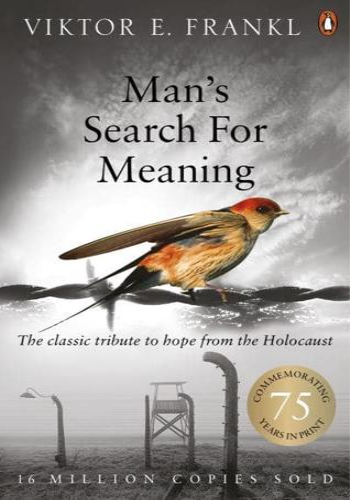Introduction:
Man’s Search for Meaning is a poignant and thought-provoking book written by Viktor E. Frankl, a Holocaust survivor and psychiatrist. The book was first published in 1946 and has since sold millions of copies worldwide. It is divided into two parts – the first part chronicles Frankl’s experiences as a prisoner in concentration camps during the Holocaust, while the second part delves into his approach to logotherapy, a form of psychotherapy he developed based on his experiences.
Chapter 1: Experiences in a Concentration Camp
In the first chapter, Frankl shares his experiences as a prisoner in concentration camps during the Holocaust. He vividly describes the brutal conditions they were subjected to – starvation, harsh weather, and physical and emotional abuse. He also notes that the prisoners’ mental state was just as important as their physical state in determining their survival. Frankl observed that those who lost their sense of hope and purpose were the ones who gave up and succumbed to death.
Real-life example: One of the most poignant examples of this can be seen in the story of a fellow prisoner who had lost both his wife and children in the camps. This man was severely depressed and constantly talked about wanting to die. However, when Frankl asked him about his unfinished scientific work, the man lit up and became motivated to survive in order to finish it. Despite being subjected to the same brutal conditions, the man found a glimmer of hope and purpose through his work, ultimately helping him to survive.
Chapter 2: Logotherapy in a Nutshell
In this chapter, Frankl explains the principles behind his approach to therapy, which he calls logotherapy. He asserts that the main drive in human beings is the search for meaning and purpose in life. He argues that this search is universal, and when people fail to find meaning, they may experience a feeling of emptiness and despair. Logotherapy focuses on helping individuals identify their meaning and purpose in life, which helps them to cope with any suffering or challenges they may face.
Real-life example: One example of logotherapy in action can be seen in the story of a woman who had lost her husband and all her children in the concentration camps. She was spiraling into depression and refused to eat or speak to anyone. However, when Frankl asked her about the one thing in life that she would do if she had the chance, she replied that she would love to take care of her youngest child who had died in the camps. Frankl used this realization to help her find a sense of purpose; she began to eat and became more engaged in the camp community. This example highlights the power of finding meaning and purpose in even the most hopeless of situations.
Chapter 3: Logotherapy in a Clinical Perspective
In this chapter, Frankl describes how logotherapy can be applied in a clinical setting. He argues that therapists must help their patients find meaning and purpose in their lives in order to facilitate healing and growth. He also discusses the concept of “tragic optimism” – the ability to find meaning and hope in the midst of suffering and tragedy.
Real-life example: A striking example of tragic optimism can be found in the story of a patient who was diagnosed with a terminal illness. She struggled to find meaning in her suffering and often asked, “What is the point of living if I’m going to die soon?” Through logotherapy, the patient was able to find meaning and purpose by focusing on the impact she could have on her loved ones and the world. She spent her remaining months spreading love and kindness, and when she eventually passed away, she did so with dignity and a sense of fulfillment.
Conclusion:
Man’s Search for Meaning is a powerful book that explores the human condition through the lens of one of the darkest periods in history. Frankl’s experiences in the concentration camps and his development of logotherapy provide valuable insights into the importance of finding meaning and purpose in life, especially in times of great adversity. The real-life examples in each chapter serve to illustrate the concepts and make this book a truly moving and thought-provoking read.







